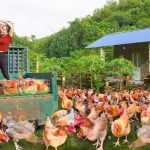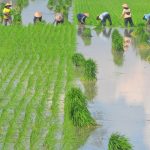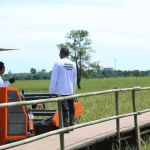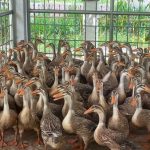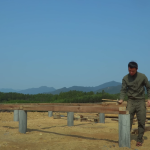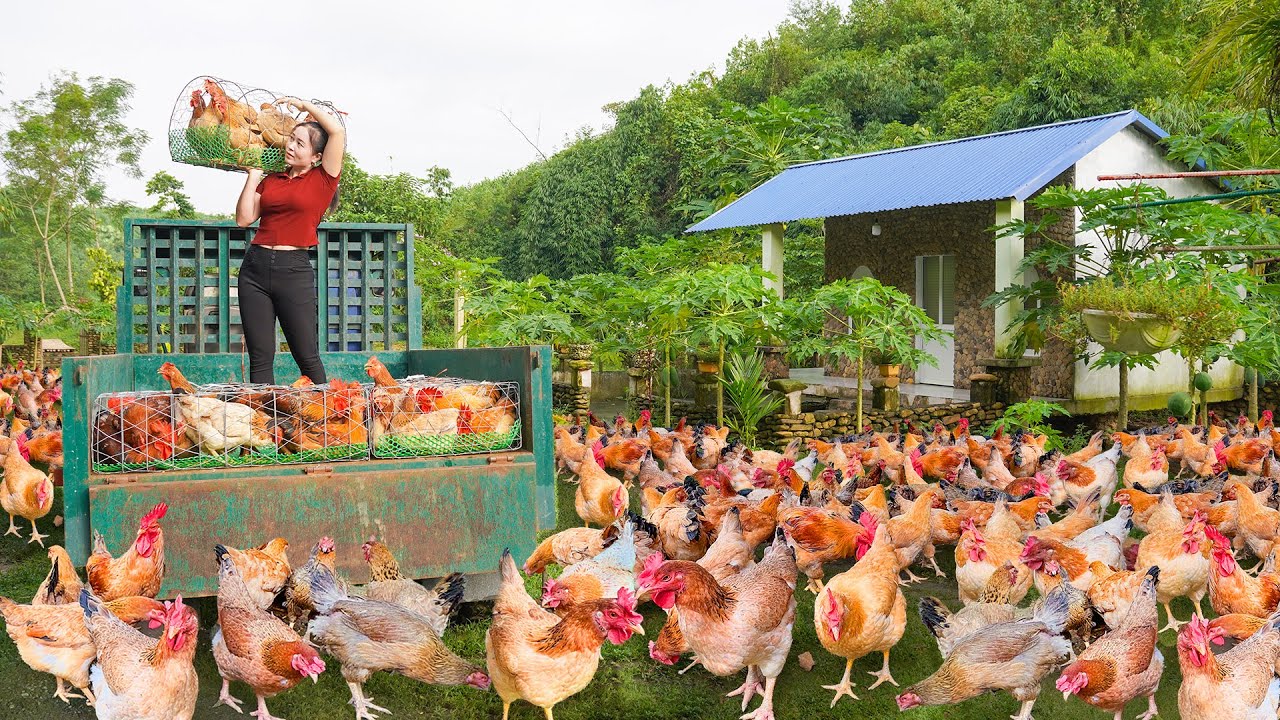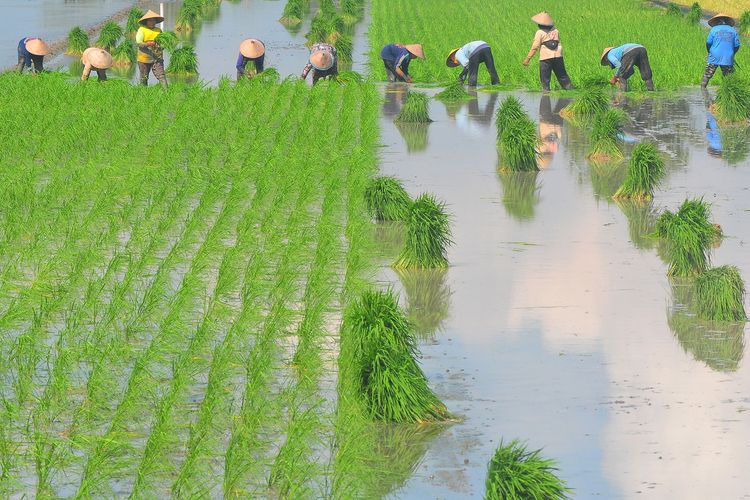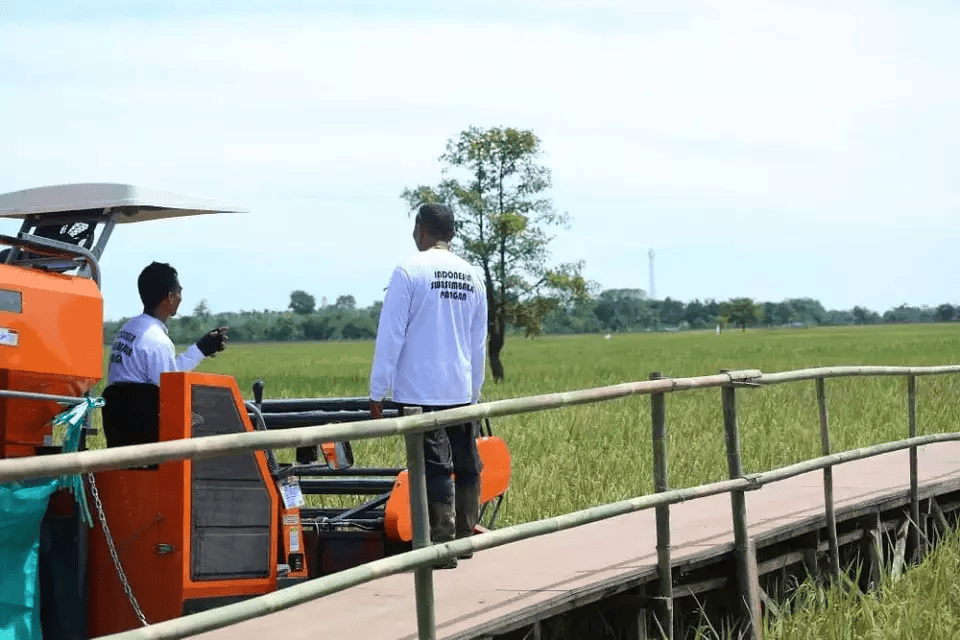🍊 From Branch to Basket A Story of Fruit, Forests, and Folks Who Don’t Do 9-to-5
“Not all heroes wear capes some carry fruit baskets and smell like the forest.”
Let’s face it. These days, fruit shopping usually means air-conditioned aisles, neon lighting, and overpriced apples from Chile wrapped tighter than your last breakup. We tap our phones, scan barcodes, and voilà instant mango.
But behind the convenience and cling wrap, there’s a quieter story. A story about muddy shoes, scratched calves from the bush, and hands that know exactly when a fruit is just right not because of an app, but because they’ve lived it.
One such story popped up on my feed through a video titled “Harvesting Forest Fruit Goes to Market Sell” from Tiểu Vân Daily Life. Not the flashiest title, sure. But the content? Honest, earthy, and beautifully raw. Like that one friend who doesn’t talk much but always makes you think.
So in this piece, I’m taking you on a walk through that world where harvesting wild fruit is more than just “pick and sell”, and selling at the local market is less about marketing tactics and more about real human connection.
🍃 Part One: Picking Fruit (But It’s Not Just Grabbing Stuff Off Trees)
1.1 Grandma Would Be Proud: Instincts, Senses & the OG Knowledge
Okay, imagine this: You’re in a dense forest, trying to find fruit that won’t send you running to the nearest bathroom. No labels, no Google Lens, just vibes.
This is the daily reality for people who harvest wild fruits. They don’t need QR codes. Their knowledge is old-school passed down through generations, not webinars.
These folks know what’s ripe just by looking, touching, sniffing even sensing. It’s like being part botanist, part food critic, and part forest ninja. They don’t guess they know. That fruit? Not ready. That one? Just right. That other one? Uh-oh, squirrel already beat you to it.
And it’s not just knowledge. It’s a relationship. A quiet conversation between human and nature that says, “Hey, I see you. And thank you.”
1.2 The Gentle Harvest: Take What You Need, Leave the Drama
Unlike commercial farms that act like they’re in a Fast & Furious movie rushing, grabbing, stripping the land these harvesters move differently.
They take just enough. Not because they’re minimalists with an aesthetic Instagram feed, but because they respect the land. Their baskets aren’t overstuffed. Their hands don’t rip, they lift.
And the unspoken rule? Leave something behind. For the forest. For the animals. For next season. Because nature isn’t a machine it’s family.
So yes, they could probably grab more. But they don’t. And that’s kind of poetic, isn’t it?
🛵 Part Two: From Forest Floor to Market Table (And Everything In Between)
2.1 From Silence to Shenanigans: The Forest-to-Market Shift
Once the harvest is done, it’s time to go to market. And the commute? Oh, it’s not a sleek SUV. It’s usually a motorcycle that’s older than you and louder than your neighbor’s karaoke.
But what’s being carried isn’t just fruit. It’s hope. For groceries. For school uniforms. Maybe even for a little treat after a long day.
And the moment they enter the market, everything changes. The quiet rustle of leaves gives way to the loud, beautiful chaos of community. Shouts, bargaining, someone yelling about tofu. It’s messy. It’s real. And it’s alive.
Their table is simple. The fruits are laid out maybe on banana leaves, maybe in neat piles, but always with care. Each fruit has a story. And they’re ready to share it.
2.2 Selling With Soul: No Marketing Plan, Just Truth
What makes these transactions special isn’t just what’s being sold it’s who’s selling it.
Buyers ask, “Where’s this from?”
And the answer isn’t a barcode it’s a journey.
“This was picked yesterday, up near the river bend.”
“Try it with salt and chili it’s amazing.”
There’s no script. No hard sell. Just trust, built one fruit and one conversation at a time. And the money? Goes straight to the hands that did the work. No middlemen. No algorithms. Just dignity.
🌾 Final Thoughts: Fruit, Forest, and Finding Meaning in the Messy Middle
This isn’t just a tale about fruit. It’s about life. It’s about doing work that connects you to something real. Something that smells like soil and tastes like sunshine.
And maybe just maybe it’s a reminder for the rest of us.
In our world of speed and spectacle, maybe there’s value in slowing down. In picking carefully. In selling honestly. In remembering that a full life doesn’t always come from more sometimes it comes from enough.
So next time you see a banana going a little brown, maybe don’t toss it. Maybe make banana bread. Or compost it. Or give it to someone who makes smoothies like it’s a spiritual calling.
Because small actions matter. And stories like Tiểu Vân’s? They remind us that even in the smallest fruits, there’s something truly big.
🙋♀️ Written by [Hasan Victor]
If this piece gave you something to think about, leave a clap 👏 (or twelve), drop a comment, or share it with someone who needs a breath of fresh forest air.
